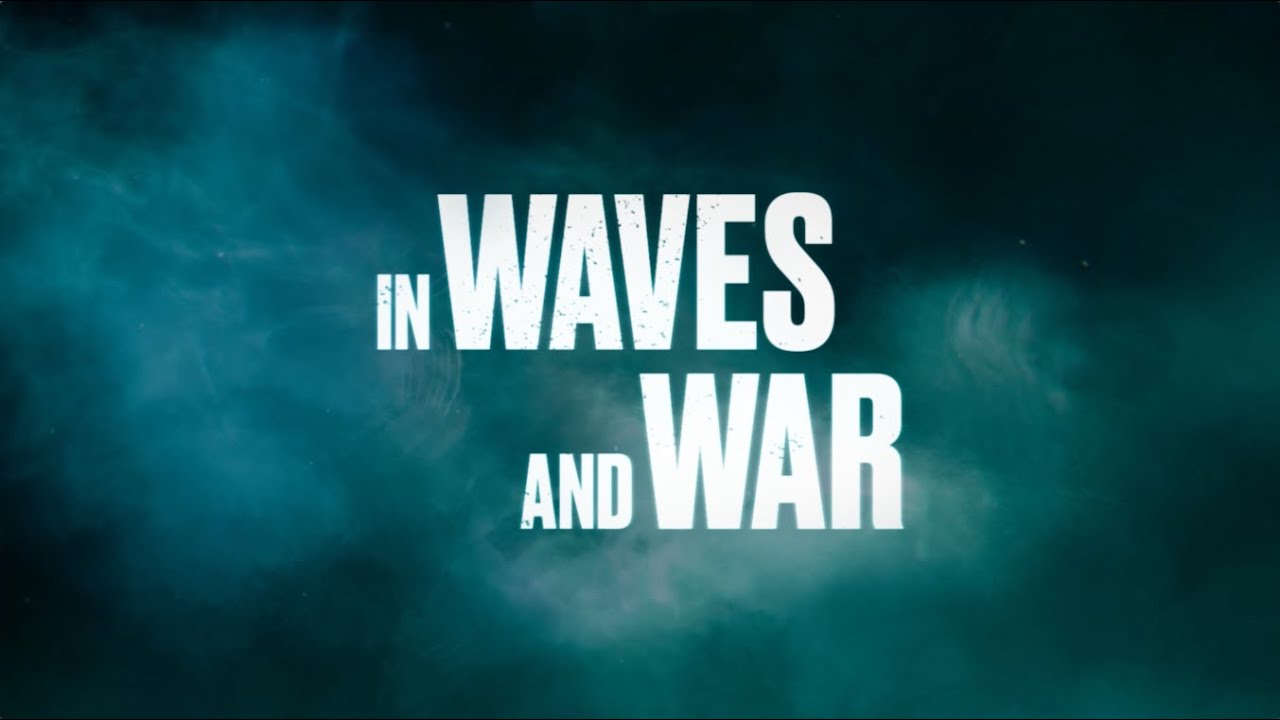Culture
New Netflix Documentary Shows How Psychedelics Help Military Veterans Heal Trauma

“Too many treatments put a Band-Aid fix on it…but psychedelics get into your unconscious.”
By Josh Kasoff, Filter
Many United States veterans endure unrelieved suffering, long after they return home, from conditions related to their traumatic experiences. This manifests in tragic ways.
But the psychedelic renaissance brings new hope to this situation—and of sparking wider reform, when veteran-focused legislation may help open the door to broader access. The film In Waves and War, released on Netflix on November 3, will increase public exposure to harrowing issues and potential solutions.
The documentary, which premiered at the 2024 Telluride Film Festival, details the journeys to psychedelic treatment of three Navy SEALs: Marcus Capone, D.J. Shipley and Matty Roberts.
“We’re so proud to have made this film,” Jon Shenk, who directed the film alongside Bonni Cohen, told the audience at a recent screening, hosted in Massachusetts by the veteran nonprofit Home Base. “Marcus was a 13-year Navy SEAL who sustained multiple [traumatic brain injuries] and concussions and was living with the aftermath of that devastating effect on his mental and physical health. He tried every pill and conventional therapy. They discovered this alternative therapy involving psychedelics, and it ended up really saving him.”
Another recent screening, which I attended, was hosted by the Alexander Grass Humanities Institute of Johns Hopkins University, at the Hopkins Bloomberg Institute in Washington, DC. Johns Hopkins, with its Center for Psychedelic and Consciousness Research, has been among the pioneers in this space since 2000. Besides post-traumatic stress disorder, the department is researching psychedelic treatments for alcohol use disorder (AUD) and smoking cessation, among other needs.
On screen, the three veterans candidly share painful memories of serving in Iraq and Afghanistan. They endured frequent nightmares after experiencing events like ambushes, the bullet wound that saw Roberts receive a Purple Heart, and Operation Red Wings, which in 2005 ended with 19 US troops killed by Taliban forces.
Many of the scars didn’t heal, and for Capone in particular, his resulting health problems began to cause issues with his family. None of the therapies and medications the VA recommended were helping, and his conditions were only worsening.
“My mental condition has diminished. I’ve tried to hide this for the past couple years, but it’s become painfully obvious to the people close to me that I am struggling in many aspects of my life,” Capone wrote in his letter to request medical retirement from the Navy, part of which he reads out during In Waves and War.
“The audience was deeply moved by the story of Marcus Capone and his fellow Navy Seals, the efforts of Marcus’s wife Amber, and the ongoing struggles of our military veterans,” Dr. Virginia Jewiss, the moderator of the DC panel discussion and a professor at the Humanities Institute, told Filter after the event. “We were all stunned and dismayed to learn of the high suicide rates among the military.”
Jewiss also praised the film’s “creative use of animation to bring the viewer into the psychedelic experience.”
Hope for Capone seemed nonexistent, until his wife learned of the possibilities of psychedelic treatments that were being conducted at clinics in Mexico. The therapies utilized ibogaine and DMT, two naturally occurring psychedelics that are prohibited under Schedule I of the Controlled Substances Act in the US.
Capone was apprehensive, but after persuasion and eventually an ultimatum from his wife and family, he went to Mexico.
He found the treatment extraordinarily effective. He described gaining new, positive perspectives, or closure, on past traumas, such as the drowning death of a close friend and fellow SEAL. He believes this is unlikely to have happened through any VA-sanctioned therapy.
“All of our friends that are suffering,” he told his wife after his trip, “we need to introduce this to them to get them better.”
In 2019, Marcus and Amber Capone founded the nonprofit VETS (Veterans Exploring Treatment Solutions). Both Shipley and Roberts are among over 1,200 people they’ve since funded to receive psychedelic treatments.
“We can’t meet the demand,” Capone told PBS News. “We’re overwhelmed with applications. I’d say we can accept one out of every 10.”
Advocates have long urged that veterans and other people in need should be able to receive psychedelic treatment without the cost and difficulty of having to leave the country.
There are signs they’re getting through. In December 2024, it was announced that the Department of Veterans Affairs would fund its first study on psychedelic-assisted therapy since the 1960s, using MDMA for veterans with PTSD and AUD. Recently expanded VA research is also investigating MDMA and psilocybin for PTSD, treatment-resistant depression and anxiety disorders.
During animated sequences in the film, the three SEALs describe their experiences, with ibogaine and DMT, of overcoming or coming to internal peace with not only the traumas of war, but also traumatic events from life long before they enlisted.
“Ibogaine gets to the root cause of what’s affecting your everyday life,” Capone told PBS News. “Too many treatments put a Band-Aid fix on it…but psychedelics get into your unconscious.”
“Mexico beat the crap out of me,” Roberts tells his therapist at the end of In Waves and War. “But I could feel a connection to everything.”
This article was originally published by Filter, an online magazine covering drug use, drug policy and human rights through a harm reduction lens. Follow Filter on Bluesky, X or Facebook, and sign up for its newsletter.
Photo courtesy of Wikimedia/Mushroom Observer.




